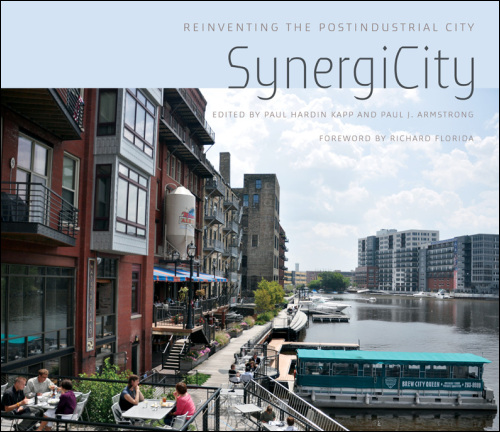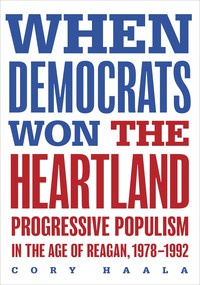
SynergiCity
About the Book
SynergiCity: Reinventing the Postindustrial City proposes a new and invigorating vision of urbanism, architectural design, and urban revitalization in twenty-first-century America. Culling transformative ideas from the realms of historic preservation, sustainability, ecological urbanism, and the innovation economy, Paul Hardin Kapp and Paul J. Armstrong present a holistic vision for restoring industrial cities suffering from population decline back into stimulating and productive places to live and work.With a particular emphasis on the Rust Belt of the American Midwest, SynergiCity argues that cities such as Detroit, St. Louis, and Peoria must redefine themselves to be globally competitive. This revitalization is possible through environmentally and economically sustainable restoration of industrial areas and warehouse districts for commercial, research, light industrial, and residential uses. The volume's expert researchers, urban planners, and architects draw on the redevelopment successes of other major cities--such as the American Tobacco District in Durham, North Carolina, and the Milwaukee River Greenway--to set guidelines and goals for reinventing and revitalizing the postindustrial landscape.
Contributors are Paul J. Armstrong, Donald K. Carter, Lynne M. Dearborn, Norman W. Garrick, Mark L. Gillem, Robert Greenstreet, Craig Harlan Hullinger, Paul Hardin Kapp, Ray Lees, Emil Malizia, John O. Norquist, Christine Scott Thomson, and James H. Wasley.
About the Author
Paul Hardin Kapp is the author of The Architectural Odyssey of William Nichols: Building the South in North Carolina, Alabama, and Mississippi. Paul J. Armstrong is the curator of the exhibit "Space, Movement, and Light" at Space Gallery in Chicago. They are both associate professors of architecture at the University of Illinois at Urbana-Champaign.Reviews
"Contains valuable insight."--Shepherd Express"The book oozes with optimism for a bucolic yet historically gritty future for these postindustrial, medium-sized Midwestern cities. The book is a neat and clear attempt to pull some wildly popular ideas together under one roof and apply them to a rather understudies subject: medium-sized postindustrial Midwestern cities. Along with scores of beautiful images, the book succeeds in that mission and is a pleasure to recommend."--The Geographical Review
Blurbs
"Instead of handing over neighborhoods to city hall or private developers, this book shows that the solution to many cities' plights lies within them. Empowering residents to take control of and build on community assets, engaging them in community-based organizations that can spearhead revitalization and build real quality of place, yields real results. To the extent that they adopt a holistic approach to planning and build on a city's intrinsic strengths, they can accomplish miracles."--from the foreword by Richard Florida
"This timely and approachable collection provides meaningful case studies and a wealth of topics for discussion in urban studies and redevelopment. Professionals and students in urban planning, government, and urban development will find this volume greatly interesting."--Robert M. Lau, associate editor of the Council on Tall Buildings and Urban Habitat Journal
Awards
• Historic Preservation Book Prize, University of Mary Washington Center for Historic Preservation, 2013• A Choice Outstanding Title, 2013






